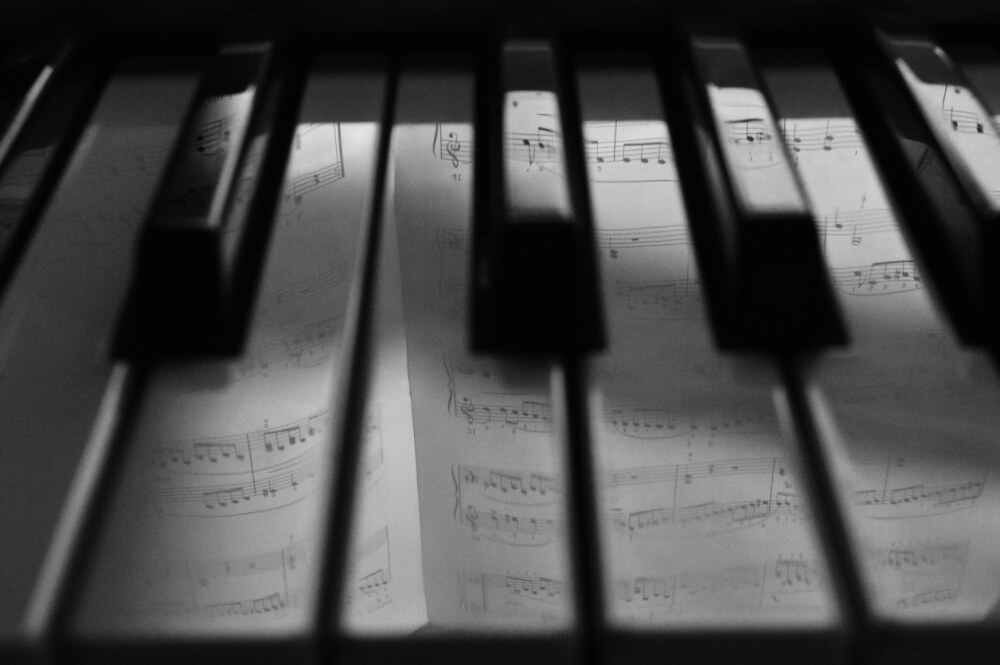In the vibrant tapestry of 20th-century music, few names shine as subtly yet significantly as Ernie Freeman. A maestro whose fingers danced across piano keys with the same ease and passion with which he orchestrated chart-topping hits, Freeman’s journey from a budding talent in Cleveland to a sought-after arranger in Los Angeles reads like a melody—complex, captivating, and profoundly touching.
This introduction seeks to unravel the life of Ernie Freeman, not just as a musician but as an artist who painted the era of the 1950s and 1960s with his unique sonic palette. From his early explorations in music to his indelible impact on the R&B, jazz, and rock and roll scenes, we embark on a journey through Freeman’s life, delving into his personal experiences and the rhythmic legacy he left behind. Join us as we explore the chords and cadences that defined not only Freeman’s career but also the soundtrack of an era.
Ernie Freeman’s Early Years
Ernie Freeman’s musical odyssey began in Cleveland, Ohio, where he was born into a world brimming with the nascent sounds of modern jazz and R&B. From a young age, Freeman exhibited an innate talent for music, his early life marked by an insatiable curiosity for sounds and rhythms that surrounded him. This section delves into the formative years of Freeman’s life, exploring how his environment, family, and inherent musical proclivity shaped the foundation of his illustrious career.
Raised in a time when music served as both solace and expression for the African American community, Freeman’s childhood was steeped in a rich musical heritage. He quickly became proficient in piano, a skill that would later define his career and contributions to the music industry. This part of his journey is not just a story of talent and early achievement but also a testament to the power of perseverance and the pursuit of passion against the odds.
Music Career
Ernie Freeman’s transition from a young prodigy to a professional musician is a narrative of remarkable evolution, marked by groundbreaking achievements and collaborations that shaped the soundtracks of the 1950s and 1960s. This section outlines the pivotal moments and key contributions of Freeman’s career, highlighting his versatility and influence in the music industry.
Recording Artist and Session Musician
Freeman quickly became a sought-after session musician, lending his piano skills to recordings by renowned artists. His ability to blend into various musical styles made him a favorite among record producers and artists alike.
Aside from his session work, Freeman embarked on solo projects that showcased his range as a musician. His singles, such as “Raunchy,” gained significant popularity, highlighting his talent as a composer and performer. You may also read our post about the History of Julie London.
Arranger and Composer
Freeman’s prowess extended beyond performance; he was also a master arranger and composer. He crafted arrangements for numerous hits, contributing to the success of many artists and shaping the sound of an era. Freeman’s talents also found a place in the scoring of film and television, where his compositions added depth and emotion to visual narratives.
In 1960, Freeman became a successful arranger and musical director for Reprise Records. He worked for several big names such as Frank Sinatra, Connie Francis, Dean Martin, Johnny Mathis and Petula Clark. He also sessioned for Liberty Records artists which included Julie London, Bobby Vee, Johnny Burnett, Gene McDaniels, Timi Yuro, Walter Brennan and The Crickets.
Innovator and Influencer
Freeman was at the forefront of blending genres, merging elements of jazz, R&B, rock and roll, and pop to create unique sounds that captivated audiences. Beyond his personal achievements, Freeman’s impact includes the guidance and inspiration he provided to emerging musicians, securing his place as a pivotal figure in the music industry.
Ernie Freeman’s career is a testament to his enduring influence and the timeless appeal of his music. His contributions continue to resonate, underscoring the depth of his talent and the breadth of his impact.
Popular Songs
Ernie Freeman’s discography is a showcase of musical versatility and innovation, spanning various genres and eras. His contributions, both as a performer and an arranger, have left an indelible mark on the music industry. This section highlights some of Freeman’s most popular songs and the stories behind their success.
Signature Singles
- “Raunchy”: One of Freeman’s most celebrated hits, “Raunchy,” is a prime example of his ability to blend smooth melodies with infectious rhythms. This instrumental piece became a jukebox favorite, showcasing Freeman’s talent as a pianist and composer.
- “Lost Dreams”: Another standout track, “Lost Dreams,” features Freeman’s emotional depth and mastery of the piano. This song exemplifies his skill in creating music that resonates on a personal level with listeners.
Collaborative Hits
Freeman’s role as an arranger and session musician saw him contributing to numerous hits by other artists. His ability to enhance a song’s arrangement while respecting the original vision made him a valued collaborator in the studio.
- “The Twist” by Chubby Checker: Freeman’s piano work contributed to this iconic dance track, which became a cultural phenomenon and topped the charts.
- “Stranger on the Shore” by Acker Bilk: Freeman arranged this smooth, melodic piece that became a significant hit in the early 1960s.
- “You’ve Lost That Lovin’ Feelin'” by The Righteous Brothers: Freeman’s arrangement and keyboard work was integral to the production of this timeless classic produced by Phil Spector.
- “Spanish Harlem” by Ben E. King: Freeman’s contributions as an arranger helped shape the sound of this enduring hit.
- “These Boots Are Made for Walkin'” by Nancy Sinatra: Freeman’s arrangement contributed to the success of this pop classic.
- “Up, Up and Away” by The 5th Dimension: Freeman worked on the arrangement of this Grammy-winning hit.
- “Viva Las Vegas” by Elvis Presley: Freeman was involved in the arrangement of this and potentially other tracks for Elvis Presley, showcasing his ability to work across diverse musical styles.
Freeman collaborated with artists such as Duane Eddy, The Crickets, Johnny Brunette, Buddy Knox, and Bobby Vee. From rock and roll to R&B and pop, Freeman’s arrangements crossed genre boundaries, contributing to the success of songs across the musical spectrum.
Legacy Tracks
Freeman’s music has influenced countless artists and continues to be sampled and celebrated in contemporary music. His tracks have stood the test of time, appealing to new generations of listeners and musicians. Beyond his singles and collaborations, Freeman’s work in film and television added another layer to his legacy, with his compositions setting the mood for various cinematic and televised moments.
- Arrangements for Frank Sinatra: Freeman’s work as an arranger for some of Frank Sinatra’s recordings contributes to his legacy, demonstrating his versatility and the high regard in which he was held within the music industry.
- “Sinner Man” by Sarah Vaughan: Freeman’s arrangement for this track exemplifies his ability to blend jazz and pop elements, creating a unique sound that enhanced Vaughan’s vocal performance.
- “The Stripper” by David Rose: Although Freeman did not compose this track, his style influenced the sound of this and similar recordings, with many assuming Freeman’s involvement due to the track’s signature piano and arrangement style reminiscent of his work.
- “Tuff” by Ace Cannon: Freeman’s influence and style can be heard in the arrangement and production of this instrumental hit, highlighting his impact on the instrumental rock and roll genre.
- Film and Television Scores: Freeman’s compositions for film and television have also contributed to his legacy, with his music setting the tone for various cinematic and televised moments.
His contributions to music—whether through his solo projects, arrangements, or collaborations—have left a permanent mark on the industry and continue to influence musicians and listeners alike.
Personal Life
Behind the scenes of Ernie Freeman’s illustrious career was a life rich with personal experiences, relationships, and moments that shaped him not just as a musician but as a person. This section peels back the curtain on Freeman’s life outside the recording studio, offering a glimpse into his personal life, values, and the people who were part of his journey.
Family and Relationships
Freeman’s family played a pivotal role in his life, providing both support and inspiration. His personal relationships, particularly with his family, were a source of strength and grounding amidst the whirlwind of his professional life. Despite his public persona, Freeman was known to cherish his privacy, keeping his personal life away from the spotlight. This privacy allowed him to nurture genuine relationships and maintain a sense of normalcy.
Interests and Passions Beyond Music
Freeman’s life was not confined to music alone. He harbored interests in a range of activities that enriched his life and provided a counterpoint to his professional endeavors. Beyond his immediate family and interests, Freeman was deeply connected to his community. He believed in giving back and contributing to the cultural and social fabric of his environment.
The Man Behind the Music
Freeman was revered not just for his musical talent but also for his character. His values, work ethic, and approach to life left a lasting impression on those who knew him personally. In his quieter moments, Freeman reflected on his journey, the legacy of his work, and the balance between his public and private selves.
Ernie Freeman’s personal life was as multifaceted as his musical career. It was marked by deep relationships, a commitment to his values, and a life lived with intention and purpose. His story is a reminder of the person behind the music and the human experiences that inform artistic expression.
Interesting Facts and Trivia About Ernie Freeman
Ernie Freeman’s life and career are filled with interesting anecdotes, achievements, and lesser-known facts that paint a fuller picture of the man behind the music. This section explores some of the intriguing trivia that adds depth to Freeman’s legacy, revealing the multifaceted artist and individual he truly was.
- First Instrument: Contrary to what many might assume, the piano was not Freeman’s first musical instrument. His initial foray into music was through a different instrument, which laid the groundwork for his eventual mastery of the piano.
- Chart Achievements: Freeman’s “Raunchy” was one of the first instrumental tracks to achieve significant chart success in the rock and roll era, setting a precedent for instrumental hits in popular music.
- Studio Nicknames: Known for his professionalism and skill, Freeman earned various affectionate nicknames from fellow musicians and producers in the recording studios, highlighting his respected status in the music community.
- Hidden Talents: Beyond his musical prowess, Freeman possessed talents and interests that many fans and even some close associates were unaware of, showcasing his diverse skills and hobbies.
- Encounters with Fame: Freeman’s career brought him into contact with numerous music legends, leading to memorable encounters and stories that have become part of music industry lore.
- Philanthropy and Mentorship: Outside of his public persona, Freeman was involved in philanthropic efforts and mentorship programs, contributing to his community and supporting aspiring musicians in a variety of ways.
- Musical Influences: While Freeman himself became an influence for many, he had his own set of musical heroes and influences that shaped his style and approach to music.
- Preferred Instruments: Among the myriad of instruments Freeman mastered, he had a particular affinity for certain makes and models, which he believed best captured the essence of his musical expression.
Conclusion
Freeman’s work behind the scenes, crafting the sounds that defined an era, cemented his role as an unsung hero of the music industry. His arrangements and compositions provided the foundation upon which many artists built their careers, and his influence can be heard in the countless records that bear his touch. Freeman’s ability to merge genres, innovate within traditional structures, and elevate the work of others through his arrangements speaks to a legacy that transcends time and trends.
In remembering Ernie Freeman, we celebrate not just the music he made but the path he paved for future generations. His contributions continue to resonate, reminding us of the power of music to connect, inspire, and endure. Ernie Freeman’s legacy is a melody that plays on, echoing through the halls of music history and into the hearts of those who listen.



